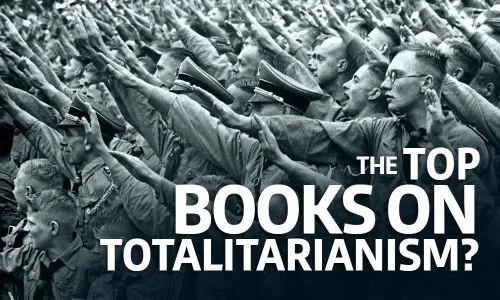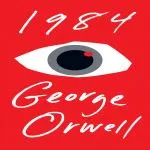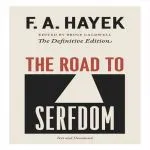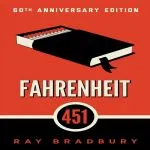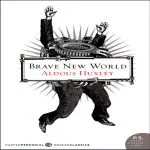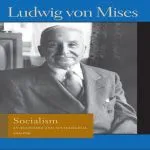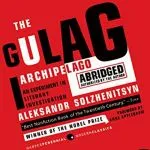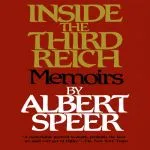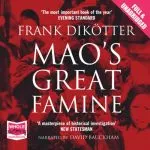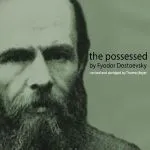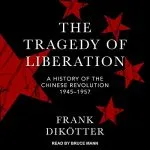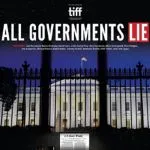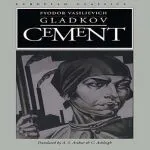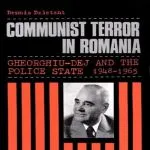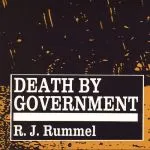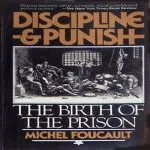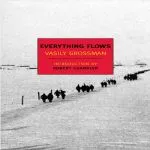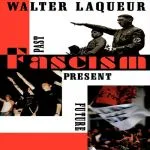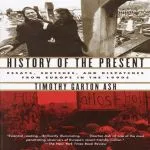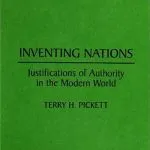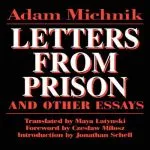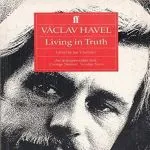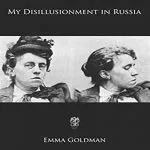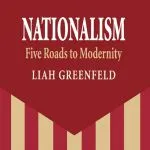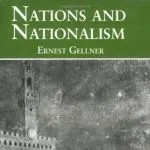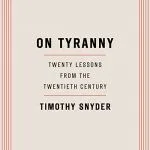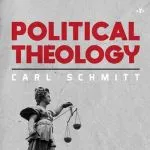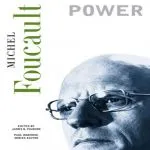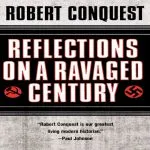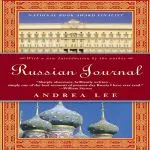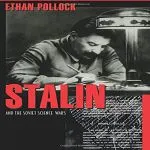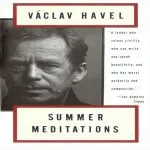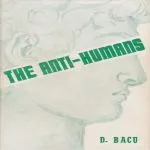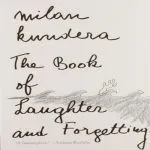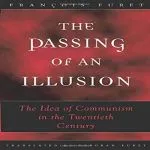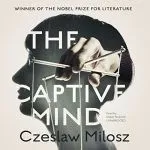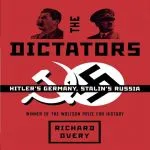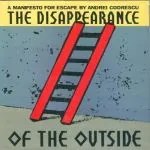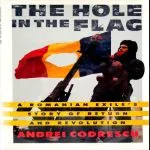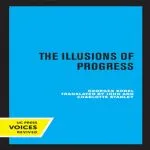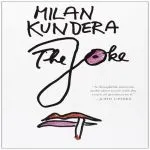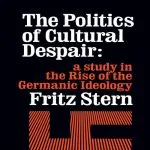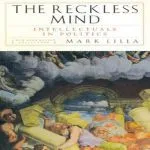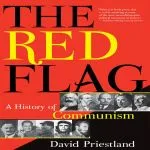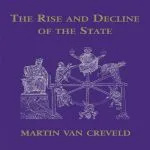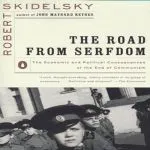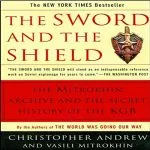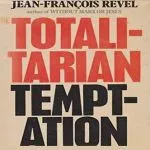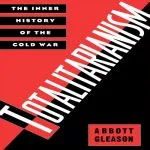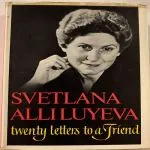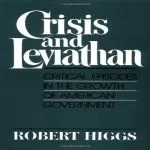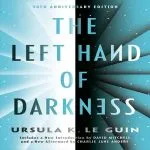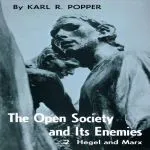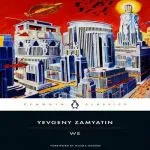1
1984, by George Orwell
Written more than 70 years ago, 1984 was George Orwell’s chilling prophecy about the future. And while 1984 has come and gone, his dystopian vision of a government that will do anything to control the narrative is timelier than ever...
2
The Road to Serfdom, by Friedrich Hayek
An unimpeachable classic work in political philosophy, intellectual and cultural history, and economics, The Road to Serfdom has inspired and infuriated politicians, scholars, and general readers for half a century. Originally published in 1944—when Eleanor Roosevelt supported the efforts of Stalin, and Albert Einstein subscribed lock, stock, and barrel to the socialist program—The Road to Serfdom was seen as heretical for its passionate warning against the dangers of state control over the means of production.
3
Fahrenheit 451, by Ray Bradbury
Guy Montag is a fireman. His job is to destroy the most illegal of commodities, the printed book, along with the houses in which they are hidden. Montag never questions the destruction and ruin his actions produce, returning each day to his bland life and wife, Mildred, who spends all day with her television “family.” But when he meets an eccentric young neighbor, Clarisse, who introduces him to a past where people didn’t live in fear and to a present where one sees the world through the ideas in books instead of the mindless chatter of television, Montag begins to question everything he has ever known.
4
Brave New World, by Aldous Huxley
Aldous Huxley's profoundly important classic of world literature, Brave New World is a searching vision of an unequal, technologically-advanced future where humans are genetically bred, socially indoctrinated, and pharmaceutically anesthetized to passively uphold an authoritarian ruling order–all at the cost of our freedom, full humanity, and perhaps also our souls.
5
Socialism, by Ludwig von Mises
More than thirty years ago F. A. Hayek said of Socialism: “It was a work on political economy in the tradition of the great moral philosophers, a Montesquieu or Adam Smith, containing both acute knowledge and profound wisdom. . . . To none of us young men who read the book when it appeared was the world ever the same again.”
6
The Anti-Duhring, by Friedrich Engels
Anti-Dühring is a book by Friedrich Engels, first published in German in 1878. It had previously been serialised in the newspaper Vorwärts. There were two further German editions in Engels' lifetime. Anti-Dühring was first published in English translation in 1907.
7
The Gulag Archipelago, by Alexsander Solzhenitsyn
The Gulag Archipelago: An Experiment in Literary Investigation is a three-volume non-fiction text which was written between 1958 and 1968 by the Russian writer and Soviet dissident Aleksandr Solzhenitsyn. It was first published in 1973, and it was translated into English and French the following year.
8
Inside the Third Reich, by Albert Speer
Speer, the Minister of Armaments and War Production under Hitler, the man who had kept Germany armed and the war machine running even after Hitler's mystique had faded, takes a brutally honest look at his role in the war effort, giving readers a complete view of the inside of the Nazi state.
9
Mao's Great Famine, by Frank Dikotter
Between 1958 and 1962, 45 million Chinese people were worked, starved or beaten to death. Mao Zedong threw his country into a frenzy with the Great Leap Forward. It lead to one of the greatest catastrophes the world has ever known. Dikotter's extraordinary research within Chinese archives brings together for the first time what happened in the corridors of power with the everyday experiences of ordinary people. This groundbreaking account definitively recasts the history of the People's Republic of China.
10
The Cultural Revolution, by Frank Dikotter
After the economic disaster of the Great Leap Forward that claimed tens of millions of lives from 1958-1962, an aging Mao Zedong launched an ambitious scheme to shore up his reputation and eliminate those he viewed as a threat to his legacy. The stated goal of the Cultural Revolution was to purge the country of bourgeois, capitalistic elements he claimed were threatening genuine communist ideology. Young students formed the Red Guards, vowing to defend the Chairman to the death, but soon rival factions started fighting each other in the streets with semiautomatic weapons in the name of revolutionary purity. As the country descended into chaos, the military intervened, turning China into a garrison state marked by bloody purges that crushed as many as one in 50 people.
11
The Great Terror: A Reassessment, by Robert Conquest
The definitive work on Stalin's purges, Robert Conquest's The Great Terror was universally acclaimed when it first appeared in 1968. Harrison Salisbury called it "brilliant...not only an odyssey of madness, tragedy, and sadism, but a work of scholarship and literary craftsmanship." And in recent years it has received equally high praise in the former Soviet Union, where it is now considered the definitive account of the period.
12
The Manufacture of Madness, by Thomas Szasz
In this seminal work, Dr. Szasz examines the similarities between the Inquisition and institutional psychiatry. His purpose is to show "that the belief in mental illness and the social actions to which it leads have the same moral implications and political consequences as had the belief in witchcraft and the social actions to which it led."
13
The Possessed, by Fyodor Dostoevsky
A new revised and abridged translation of Dostoevsky's 1872 novel, The Possessed (also known in English as Devils or Demons). Perhaps the most complicated and for non-Russians the most confusing of Dostoevsky’s major novels, as much as the novel reflected its times, it still is relevant today exploring the danger of idealism and liberalism turning increasingly to violence when it lacks spiritual direction.
14
The Rise and Fall of the Third Reich, by William Shirer
The Rise and Fall of the Third Reich: A History of Nazi Germany is a book by American journalist William L. Shirer in which the author chronicles the rise and fall of Nazi Germany from the birth of Adolf Hitler in 1889 to the end of World War II in Europe in 1945.
15
The Tragedy of Liberation, by Frank Dikotter
Following the defeat of Chiang Kai-shek in 1949, after a bloody civil war, Mao hoisted the red flag over Beijing's Forbidden City, and the world watched as the Communist revolution began to wash away the old order. Due to the secrecy surrounding the country's records, little has been known before now about the eight years that followed, preceding the massive famine and Great Leap Forward.
16
A Tomb for Boris Davidovich, by Danilo Kis
Composed of seven dark tales, A Tomb for Boris Davidovich presents variations on the theme of political and social self-destruction throughout Eastern Europe in the first half of the twentieth century. The characters in these stories are caught in a world of political hypocrisy, which ultimately leads to death, their common fate. Although the stories Kis tells are based on historical events, the beauty and precision of his prose elevates these ostensibly true stories into works of literary art that transcend the politics of their time.
17
All Governments Lie, by I. F. Stone
Giant media conglomerates are increasingly reluctant to investigate or criticize government policies, particularly on defense, security and intelligence issues.
18
At Home There Is Only Speaking In A Whisper, by Stelian Tanase
Stelian Tanase includes excerpts from his diary recounting the surveillance of his activities during the late years of the Ceausescu regime. Tanase's book also includes a unique documentary collection of archival documents contained in the files of the Romanian security police.
19
Between Past and Future: Eight Exercises in Political Thought, by Hannah Arendt
Hannah Arendt’s insightful observations of the modern world, based on a profound knowledge of the past, constitute an impassioned contribution to political philosophy. In Between Past and Future Arendt describes the perplexing crises modern society faces as a result of the loss of meaning of the traditional key words of politics: justice, reason, responsibility, virtue, and glory.
20
Blood and Belonging: Journeys into the New Nationalism, by Michael Ignatieff
Presents a perspective on the complex and volatile issue of modern nationalism, and explores the question of blood and belonging that nationalism raises. In his study, Ignatieff begins in former Yugoslavia and ends with a return to the disunited kingdom.
21
Cement, by Fyodor Vasilievich Gladkov
A classic of socialist realism, Cement became a model for Soviet fiction in the decades following its publication in the early 1920s. Gleb, a soldier hero, returns from the revolution to a world in transition, as demonstrated by the reorganization of the local cement factory for the massive national effort. His wife, Dasha, is now a leader of the Women's Section of the Communist Pary, an activist in a society where women are suddenly men's equals. Gleb finds that he cannot easily pick up the threads of their old relationship or adjust to this new social order.
22
Communist Terror in Romania: Gheorghiu-Dej and the Police State, by Dennis De...
This is a single-volume history of Romania under Gheorghiu-Dej, the Communist ruler and predecessor of Nicolae Ceausescu. It investigates the Communist's use of terror in their attempt to totally transform Romanian society, including appalling abuses and mass arrests.
23
Death By Government, by RJ Rummel
This is R. J. Rummel's fourth book in a series devoted to genocide and government mass murder, or what he calls democide. He presents the primary results, in tables and figures, as well as a historical sketch of the major cases of democide, those in which one million or more people were killed by a regime. In Death by Government, Rummel does not aim to describe democide itself, but to determine its nature and scope in order to test the theory that democracies are inherently nonviolent.
24
Discipline and Punish: The Birth of the Prison, by Michel Foucault
Discipline and Punish: The Birth of the Prison is a 1975 book by French philosopher Michel Foucault. It is an analysis of the social and theoretical mechanisms behind the changes that occurred in Western penal systems during the modern age based on historical documents from France.
25
Eichmann in Jerusalem: A Report on the Banality of Evil, by Hannah Arendt
Sparking a flurry of heated debate, Hannah Arendt’s authoritative and stunning report on the trial of German Nazi leader Adolf Eichmann first appeared as a series of articles in The New Yorker in 1963.
26
Escape From Freedom, by Eric Fromm
If humanity cannot live with the dangers and responsibilities inherent in freedom, it will probably turn to authoritarianism. This is the central idea of Escape from Freedom, a landmark work by one of the most distinguished thinkers of our time, and a book that is as timely now as when first published in 1941.
27
Everything Flows, by Vassily Grossman
Everything Flows is Vasily Grossman’s final testament, written after the Soviet authorities suppressed his masterpiece, Life and Fate. The main story is simple: released after thirty years in the Soviet camps, Ivan Grigoryevich must struggle to find a place for himself in an unfamiliar world.
28
Failed Utopias: Methods of Coercion in Communist Regimes, by Arch Puddington
Explores the routine controls exercised by Communist regimes to enforce totalitarian rule, focusing on such examples as neighborhood watchdog committees, personal identity documents, control over the workplace, and legislation over religion
29
Fascism, Totalitarianism, and Political Religion, by Roger Griffin
9/11 and its aftermath demonstrate the urgent need for political scientists and historians to unravel the tangled relationship of secular ideologies and organized religions to political fanaticism.
30
Fascism: Past, Present, and Future, by Walter Laquer
Mussolini's march on Rome; Hitler's speeches before waves of goose-stepping storm troopers; the horrors of the Holocaust; burning crosses and neo-Nazi skinhead hooligans. Few words are as evocative, and even fewer ideologies as pernicious, as fascism.
31
Gulag, by Anne Applebaum
The Gulag—a vast array of Soviet concentration camps that held millions of political and criminal prisoners—was a system of repression and punishment that terrorized the entire society, embodying the worst tendencies of Soviet communism. Applebaum intimately re-creates what life was like in the camps and links them to the larger history of the Soviet Union. Immediately recognized as a landmark and long-overdue work of scholarship, Gulag is an essential book for anyone who wishes to understand the history of the twentieth century.
32
History of the Present, by Timothy Garton Ash
The 1990s. An extraordinary decade in Europe. At its beginning, the old order collapsed along with the Berlin Wall. Everything seemed possible. Everyone hailed a brave new Europe. But no one knew what this new Europe would look like.
33
Inventing Nations: Justifications of Authority in the Modern World, by Terry ...
Pickett examines the causes of the unprecedented escalation of conflict and violence in our age and links them to the major justifications for authority in the modern world.
34
Letters from Prison and Other Essays, by Adam Michnik
Among the voices that speak to us from Poland today, the most important may be that of Adam Michnik. Michnik now sits in a jail belonging to the totalitarian regime, yet his first concern--and herein lies one of the keys to his thinking, and one should add, to his character--is with the quality of his own conduct, which, together with teh conduct of other victims of the present situation, will, he is sure, one day set the tone for whatever political system follows the totalitarian debacle.
35
Living in Truth, by Vaclav Havel
Gathers essays by the Czech playwright, and includes writings by other authors.
36
Looking Backward, by Edward Bellamy
First published in 1888, Looking Backward was one of the most popular novels of its day. Translated into more than twenty languages, its utopian fantasy influenced such thinkers as John Dewey, Thorstein Veblen, Eugene V. Debs, and Norman Thomas. Writing from a nineteenth century perspective and poignantly critical of his own time, Bellamy advanced a remarkable vision of the future, including such daring predictions as the existence of radio, television, motion pictures, and credit cards.
37
Memoirs Found in a Bathtub, by Stanislaw Lem
The year is 3149, and a vast paper destroying blight-papyralysis-has obliterated much of the planet's written history. However, these rare memoirs, preserved for centuries in a volcanic rock, record the strange life of a man trapped in a hermetically sealed underground community.
38
Men In Dark Times, by Hannah Arendt
Essays on Karl Jaspers, Rosa Luxemburg, Pope John XXIII, Isak Dinesen, Bertolt Brecht, Randall Jarrell, and others whose lives and work illuminated the early part of the century. Index.
39
Metaphysical Horror, by Leszek Kowlakowski
For over a century, philosophers have argued that philosophy is impossible or useless, or both. Although the basic notion dates back to the days of Socrates, there is still heated disagreement about the nature of truth, reality, knowledge, the good, and God. This may make little practical difference to our lives, but it leaves us with a feeling of radical uncertainty, a feeling described by Kolakowski as "metaphysical horror."
40
My Disillusionment in Russia, by Emma Goldman
My Disillusionment in Russia is a book by Emma Goldman, published in 1923 by Doubleday, Page & Co. The book was based on a much longer manuscript entitled "My Two Years in Russia" which was an eyewitness account of events in Russia from 1920 to 1921 that ensued in the wake of the Russian Revolution of 1917 and which culminated in the Kronstadt rebellion.
41
Nationalism: Five Roads to Modernity, by Liah Greenfeld
Liah Greenfeld is an Israeli-American Russian-Jewish interdisciplinary scholar engaged in the scientific explanation of human social reality on various levels, beginning with the individual mind and ending with the level of civilization.
42
Nations and Nationalism, by Ernest Gellner
Nations and Nationalism is an influential 1983 book by the philosopher Ernest Gellner, in which the author expands on his theory of nationalism.
43
Nietzsche, godfather of fascism? by Jacob Golomb and Robert S. Wistrich
Nietzsche, the Godfather of Fascism? What can Nietzsche have in common with this murderous ideology? Frequently described as the "radical aristocrat" of the spirit, Nietzsche abhorred mass culture and strove to cultivate an Übermensch endowed with exceptional mental qualities. What can such a thinker have in common with the fascistic manipulation of the masses for chauvinistic goals that crushed the autonomy of the individual?
44
On Tyranny, by Timothy Snyder
The Founding Fathers tried to protect us from the threat they knew, the tyranny that overcame ancient democracy. Today, our political order faces new threats, not unlike the totalitarianism of the 20th century. We are no wiser than the Europeans who saw democracy yield to fascism, Nazism, or communism. Our one advantage is that we might learn from their experience.
45
On Violence, by Hannah Arendt
An analysis of the nature, causes, and significance of violence in the second half of the twentieth century. Arendt also reexamines the relationship between war, politics, violence, and power.
46
Political Theology: Four Chapters on the Concept of the Sovereign, by Carl Sc...
Written in the intense political and intellectual tumult of the early years of the Weimar Republic, Political Theology develops the distinctive theory of sovereignty that made Carl Schmitt one of the most significant and controversial political theorists of the twentieth century.
47
Power, by Michel Foucault
Part of the definitive collection of Michel Foucault’s articles, interviews, and seminars, this volume lays out the philosopher’s influential thinking on the machinations of power in society
48
Reflections On a Ravaged Century, by Robert Conquest
Robert Conquest has been called by Paul Johnson "our greatest living modern historian." As a new century begins, Conquest offers an illuminating examination of our past failures and a guide to where we should go next. Graced with one of the most acute gifts for political prescience since Orwell, Conquest assigns responsibility for our century’s cataclysms not to impersonal economic or social forces but to the distorted ideologies of revolutionary Marxism and National Socialism.
49
Reinventing Politics: Eastern Europe from Stalin to Havel, by Vladimir Tisman...
Reinventing Politics gives an account of East European politics from the time of Soviet domination to the 1989-90 revolutions, and considers the effect of tyranny on East European culture and politics, the chances for successful and harmonious development in the region, and its relationship with the rest of Europe.
50
Russian Journal, by Andrea Lee
At age twenty-five, Andrea Lee joined her husband, a Harvard doctoral candidate in Russian history, for his eight months’ study at Moscow State University and an additional two months in Leningrad. Published to enormous critical acclaim in 1981, Russian Journal is the award-winning author’s penetrating, vivid account of her everyday life as an expatriate in Soviet culture, chronicling her fascinating exchanges with journalists, diplomats, and her Soviet contemporaries. The winner of the Jean Stein Award from the National Academy of Arts and Letters–and the book that launched Lee’s career as a writer–Russian Journal is a beautiful and clear-eyed travel-writing classic.
51
Russian Thinkers, by Isaiah Berlin
Few, if any, English-language critics have written as perceptively as Isaiah Berlin about Russian thought and culture. Russian Thinkers is his unique meditation on the impact that Russia's outstanding writers and philosophers had on its culture.
52
Stalin and the Soviet Science Wars, by Ethan Pollock
Between 1945 and 1953, while the Soviet Union confronted postwar reconstruction and Cold War crises, its unchallenged leader Joseph Stalin carved out time to study scientific disputes and dictate academic solutions. He spearheaded a discussion of "scientific" Marxist-Leninist philosophy, edited reports on genetics and physiology, adjudicated controversies about modern physics, and wrote essays on linguistics and political economy.
53
Summer Meditations, by Vaclav Havel
In a book written while he was president of Czechoslovakia, Vaclav Havel combines the same powerful eloquence, moral passion, and abiding wisdom that informed his writing as a dissident and playwright, with a candor unprecedented from one with the broad perspective and infinite responsibility of governing a country.
54
Terrorism: From Robespierre to the Weather Underground, by Albert Parry
This enduring landmark offers precise descriptions of terrorist organizations and events, and analyzes the changing nature and evolution of unconventional political warfare. From the genesis of the Great Terror to the mass terrorism of Stalin, Hitler, and Mao, to the Symbionese Liberation Army.
55
The Anti-Humans: Student Reeducation in Romanian Prisons, by Dumitru Bacu
In these pages, translated from Romanian, readers will have at their disposal a complete account of the dehumanization through imprisonment and torture of many of Romania's citizens by the communist regime.
56
The Black Envelope, by Norman Manea
A splendid, violent spring suddenly grips Bucharest in the 1980s after a brutal winter. Tolea, an eccentric middle-aged intellectual who has been dismissed from his job as a high school teacher on “moral grounds,” is investigating his father’s death forty years after the fact, and is drawn into a web of suspicion and black humor. Norman Manea’s enigmatic and artful novel—set against the backdrop of life under the repressive Ceausescu regime—depicts the chaos and deprivation of Tolea’s existence, and his tenuous grip on reality.
57
The Book of Laughter and Forgetting , by Milan Kundera
Rich in its stories, characters, and imaginative range, The Book of Laughter and Forgetting is the novel that brought Milan Kundera his first big international success in the late 1970s. Like all his work, it is valuable for far more than its historical implications. In seven wonderfully integrated parts, different aspects of human existence are magnified and reduced, reordered and emphasized, newly examined, analyzed, and experienced.
58
The Burial of Illusions, by Francois Furet
François Furet was acknowledged as the twentieth century's preeminent historian of the French Revolution. But years before his death, he turned his attention to the consequences and aftermath of another critical revolution—the Communist revolution. The result, Le passé d'une illusion, is a penetrating history of the ideological passions that have fueled and characterized the modern era.
59
The Captive Mind, by Czeslaw Milosz
The best-known prose work by the winner of the 1980 Nobel Prize for Literature examines the moral and intellectual conflicts faced by men and women living under totalitarianism of the left or right.
60
The Cold War: A History, by Martin Walker
Now that it's over, it's crucial to our future to understand how the Cold War has shaped us and, especially, to recognize it as the economic and political dynamic that determined the structure of today's global economy.
61
The Dictators: Hitler's Germany and Stalin's Russia, by Richard Overy
If the past century will be remembered for its tragic pairing of civilized achievement and organized destruction, at the heart of darkness may be found Hitler, Stalin, and the systems of domination they forged. Their lethal regimes murdered millions and fought a massive, deadly war. Yet their dictatorships took shape within formal constitutional structures and drew the support of the German and Russian people. In the first major historical work to analyze the two dictatorships together in depth, Richard Overy gives us an absorbing study of Hitler and Stalin, ranging from their private and public selves, their ascents to power and consolidation of absolute rule, to their waging of massive war and creation of far-flung empires of camps and prisons.
62
The Disappearance of the Outside, by Andrei Codrescu
The author recounts his life in Romania and in America, relating his thoughts on revolution, freedom, and the world today.
63
The File: A Personal History, by Timoty Garton Ash
In 1978 a romantic young Englishman took up residence in Berlin to see what that divided city could teach him about tyranny and freedom.
64
The God That Failed, by Arthur Koestler
The God That Failed is a classic work and crucial document of the Cold War that brings together essays by six of the most important writers of the twentieth century on their conversion to and subsequent disillusionment with communism. In describing their own experiences, the authors illustrate the fate of leftism around the world.
65
The Hole in the Flag: A Romanian Exile's Story of Return and Revolution, by A...
A Romanian poet-in-exile returns to his native country in the wake of the 1987 revolution that overthrew communist dictator Nicholai Ceausescu, and examines the changes in the country and their effect on him.
66
The Illusions of Progress, by Georges Sorel
Georges Sorel "argues that the idea of progress formed an essential part of the justification and defense of the rising administrative classes in France at the time of progressive ideology that has insured the Revolution."
67
The Joke, by Milan Kundera
All too often, this brilliant novel of thwarted love and revenge miscarried has been read for its political implications. Now, more than a quarter century after The Joke was first published and several years after the collapse of the Soviet-imposed Czechoslovak regime, it becomes easier to put such implications into perspective in favor of valuing the book (and all Milan Kundera 's work) as what it truly is: great, stirring literature that sheds new light on the eternal themes of human existence.
68
The Marriage, by Witold Gombrowicz
The Marriage is a play by the Polish writer Witold Gombrowicz, written in Argentina after World War II. The narrative takes place in a dream, where the dreamer transforms into a king and plans to marry his fiancée in a royal wedding, only as a means to save their integrity. A Spanish translation was first published in 1948, followed by the original Polish version in 1953. The play was first performed in 1960.
69
The Origin of Russian Communism, by Nicolas Berdyaev
Examines the forces of national history and character that shaped Soviet communism
70
The Origins of Totalitarianism, by Hannah Arendt
The Origins of Totalitarianism, published in 1951, was Hannah Arendt's first major work, wherein she describes and analyzes Nazism and Stalinism as the major totalitarian political movements of the first half of the 20th century.
71
The Political Lives of Dead Bodies: Reburial and Postsocialist Change, by Kat...
Since 1989, scores of bodies across Eastern Europe have been exhumed and brought to rest in new gravesites. Katherine Verdery investigates why certain corpses―the bodies of revolutionary leaders, heroes, artists, and other luminaries, as well as more humble folk―have taken on a political life in the turbulent times following the end of Communist Party rule, and what roles they play in revising the past and reorienting the present.
72
The Politics of Cultural Despair A Study in the Rise of Germanic Ideology, by...
This is a study in the pathology of cultural criticism. By analyzing the thought and influence of three leading critics of modern Germany, this study will demonstrate the dangers and dilemmas of a particular type of cultural despair. Lagarde, Langbehn, and Moeller van den Bruck-their active lives spanning the years from the middle of the past century to the threshold of Hitler's Third Reich-attacked, often incisively and justly, the deficiencies of German culture and the German spirit.
73
The Reckless Mind: Intellectuals in Politics, by Mark Lilla
European history of the past century is full of examples of philosophers, writers, and jurists who, whether they lived in democratic, communist, or fascist societies, supported and defended totalitarian principles and horrific regimes. But how can intellectuals, who should be alert to the evils of tyranny, betray the ideals of freedom and independent inquiry? How can they take positions that, implicitly or not, endorse oppression and human suffering on a vast scale?
74
The Red Flag: A History of Communism, by David Priestland
Communism was one of the most powerful political and intellectual movements the world has ever seen. At the height of their influence, Communists controlled more than a third of the earth’s surface. But perhaps more astonishing than its rapid rise and extraordinary reach was Communism’s sudden, devastating collapse in November of 1989. In The Red Flag, Oxford professor David Priestland tells the epic story of a movement that has taken root in dozens of countries across two hundred years, from its birth after the French Revolution to its ideological maturity in nineteenth-century Germany to its rise to dominance (and subsequent fall) in the twentieth century.
75
The Rise and Decline of the State, by Martin van Creveld
The state, which since the middle of the seventeenth century has been the most important of all modern institutions, is in decline. From Western Europe to Africa, many existing states are either combining into larger communities or falling apart. Many of their functions are likely to be taken over by a variety of organizations that, whatever their precise nature, are not states. In this unique volume Martin van Creveld traces the story of the state from its beginnings to its end.
76
The Road From Serfdom, by Robert Skidlesky
From the internationally acclaimed biographer of John Maynard Keynes comes an incisive and timely analysis of post-Cold War politics and a blueprint for how the West can assert its ideological leadership. Intellectually bold and realistic, this important book provides food for thought and debate for economists, political thinkers, and anyone concerned with today's economic and political challenges.
77
The Russian Revolution, by Richard Pipes
Looks at the decay of the tsarist empire and the causes of the Revolution, discusses the aims of the Bolshevik party, and recounts the major events of the conflict.
78
The Sword and the Shield, by Christopher Andrew and Vasili Mitrokhin
The Sword and the Shield is based on one of the most extraordinary intelligence coups of recent times: a secret archive of top-level KGB documents smuggled out of the Soviet Union which the FBI has described, after close examination, as the "most complete and extensive intelligence ever received from any source." Its presence in the West represents a catastrophic hemorrhage of the KGB's secrets and reveals for the first time the full extent of its worldwide network.
79
The Technological Society, by Jacques Ellul
Ellul offers a penetrating analysis of our technological civilization, showing how technology—which began innocuously enough as a servant of humankind—threatens to overthrow humanity itself in its ongoing creation of an environment that meets its own ends. No conversation about the dangers of technology and its unavoidable effects on society can begin without a careful reading of this book.
80
The Totalitarian Temptation, by Jean-Francois Revel
Jean-François Revel was a French philosopher, journalist, and author. A prominent public intellectual, Revel was a socialist in his youth but later became a prominent European proponent of classical liberalism and free market economics.
81
Totalitarianism: The Inner History of the Cold War, by Abbott Gleason
Totalitarianism offers a penetrating chronicle of the central concept of our era--an era shaped by our conflict first with fascism and then with communism. Interweaving the story of intellectual debates with the international history of the twentieth century, Gleason traces the birth of the term to Italy in the first years of Mussolini's rule. Created by Mussolini's enemies, the word was appropriated by the Fascists themselves to describe their program in what turned out to be one of the less totalitarian of the European dictatorships.
82
Twenty Letters to a Friend, by Svetlana Alliluyeva
Svetlana Iosifovna Alliluyeva 28 February 1926 – 22 November 2011), later known as Lana Peters, was the youngest child and only daughter of Soviet Premier Joseph Stalin and Nadezhda Alliluyeva, Stalin's second wife. In 1967, she caused an international furor when she defected and became a naturalized citizen of the United States until 1987 when she returned to the Soviet Union and got her Soviet (later Georgian) citizenship returned. She later went back to the United States and also spent time in the United Kingdom.
83
Crisis and Leviathan: Critical Episodes in the Growth of American Government,...
Few topics are as timely as the growth of government. To understand why government has grown, Robert Higgs asserts, one must understand how it has grown. This book offers a coherent, multi-causal explanation, guided by a novel analytical framework firmly grounded in historical evidence.
84
It Can't Happen Here, by Sinclair Lewis
The classic work by the author of Babbit, Arrowsmith, and Main Street prophesizes the coming of totalitarianism in the United States.
85
Political Pilgrims: Western Intellectuals in Search of the Good Society, by P...
Why did so many distinguished Western Intellectuals―from G.B. Shaw to J.P. Sartre, and. closer to home, from Edmund Wilson to Susan Sontag― admire various communist systems, often in their most repressive historical phases? How could Stalin's Soviet Union, Mao's China, or Castro's Cuba appear at one time as both successful modernizing societies and the fulfillments of the boldest dreams of social justice?
These are some of the questions Paul Hollander sought to answer In his massive study that covers much of our century.
86
The Left Hand of Darkness, by Ursula Le Guin
A lone human ambassador is sent to the icebound planet of Winter, a world without sexual prejudice, where the inhabitants’ gender is fluid. His goal is to facilitate Winter’s inclusion in a growing intergalactic civilization. But to do so he must bridge the gulf between his own views and those of the strange, intriguing culture he encounters...
87
The Open Society and Its Enemies, Volume I: The Spell of Plato, by Karl Popper
Written in political exile during the Second World War and first published in 1945, Karl Popper's The Open Society and Its Enemies is one of the most influential books of the twentieth century. Hailed by Bertrand Russell as a 'vigorous and profound defence of democracy', its now legendary attack on the philosophies of Plato, Hegel and Marx exposed the dangers inherent in centrally planned political systems.
88
The Open Society and Its Enemies, Volume II: Hegel and Marx, by Karl Popper
Popper was born in 1902 to a Viennese family of Jewish origin. He taught in Austria until 1937, when he emigrated to New Zealand in anticipation of the Nazi annexation of Austria the following year, and he settled in England in 1949.
89
We, by Yevgeny Zamyatin
All hail the Well-Doer! All hail the United State! Mathematician D-503 is building The Integral, the spaceship that will spread freedomless happiness to all the planets! Yevgeni Zamyatin's classic dystopian science fiction novel in its original English translation.
